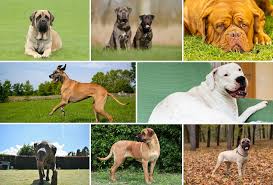The World Wild Life Fund Organization
World Wild Life Fund (WWF) is an international non-profit organization founded in 1961, working to conserve nature and reduce the most pressing threats to the diversity of life on Earth. WWF’s mission is to build a future in which people live in harmony with nature.
Some of their efforts include protecting endangered species, conserving natural habitats, reducing pollution, and promoting sustainable use of natural resources.
Wildlife refers to all non-domesticated animals, plants, and other organisms that live in the wild, including both land and sea species. Wildlife plays an important role in maintaining the balance of the ecosystem and provides valuable ecological, economic, cultural, and scientific benefits to human society.
However, human activities, such as habitat destruction, overexploitation, and climate change, pose a threat to many wildlife species and their habitats, leading to declines in biodiversity and increased risk of extinction for many species. Conservation efforts aim to protect and restore wildlife populations and their habitats, and to ensure the long-term survival of these species.
The World Wildlife Fund (WWF) is a leading international non-profit organization that was founded in 1961. Its mission is to conserve nature and reduce the most pressing threats to the diversity of life on Earth.
Some of the key areas of work for WWF include protecting endangered species and their habitats, promoting sustainable use of natural resources, and addressing the impacts of climate change on wildlife and ecosystems.
The organization works through a combination of conservation and research projects, advocacy and policy work, and education and outreach programs. It operates in more than 100 countries and is supported by a global network of offices, partners, and supporters.
Climate Change and Wild Life

Wild Life Protection and Management
Habitat conservation: Protecting and preserving wildlife habitats, such as forests, wetlands, and grasslands, to ensure that wildlife have sufficient food, water, and shelter to thrive.
Species management: Implementing programs and policies aimed at conserving threatened or endangered species, such as reintroduction and translocation programs, and controlling non-native species that are harmful to native wildlife.
Hunting and fishing regulation: Controlling the harvest of wildlife through hunting and fishing regulations, such as seasonal hunting restrictions, bag limits, and size limits, to ensure sustainable harvest levels and maintain healthy populations.
Law enforcement: Enforcing laws and regulations that protect wildlife and their habitats, such as the Endangered Species Act, the Migratory Bird Treaty Act, and the Lacey Act.
Research and monitoring: Conducting scientific research to better understand wildlife populations, habitats, and the impacts of threats such as climate change and habitat loss, and using this information to inform conservation and management efforts.
Overall, wildlife protection and management is essential to ensure the long-term survival of wildlife and the ecosystems that support them.
Poaching and Illegal Wild Life Trade
Poaching is the illegal hunting or capturing of wild animals, typically for commercial gain or personal use. The illegal wildlife trade is a global black market in which animals and their parts are bought, sold, and transported, often for use in traditional medicine, as food, as pets, or for their valuable body parts, such as ivory and rhino horn.
This illegal trade threatens many species with extinction and undermines conservation efforts. It also contributes to the spread of diseases such as zoonoses and undermines local economies and cultural practices.
Governments, NGOs, and international organizations are working to address the issue through legal and policy measures, increased enforcement and monitoring, and public education and awareness campaigns.
World Wild Life Day

The day also serves as an opportunity to reflect on the role that humans play in conserving the planet’s biodiversity and to take action to protect the future of wildlife.
The theme of World Wildlife Day changes every year and is selected to address a specific aspect of wildlife conservation. The day is celebrated globally through events, activities, and initiatives aimed at raising awareness about the need to protect wildlife and its habitat.
Conservation organizations, government agencies, and communities come together to celebrate the day and to educate the public about the importance of wildlife conservation.
Aims and Objectives of the World Wild Life Fund
To conserve biodiversity and protect endangered species and their habitats.
To promote sustainable use of natural resources, such as forests, oceans, and rivers.
To address global threats, such as climate change and wildlife crime, and their impacts on nature and people.
To empower local communities and work with partners to find lasting solutions for conservation challenges.
To raise awareness and educate people about the importance of nature and the need for its conservation.
To influence policy and decision-making at all levels, from local to global, to ensure that conservation is integrated into economic and social development.
The WWF works towards these objectives through various activities, including research and monitoring, on-the-ground conservation projects.









